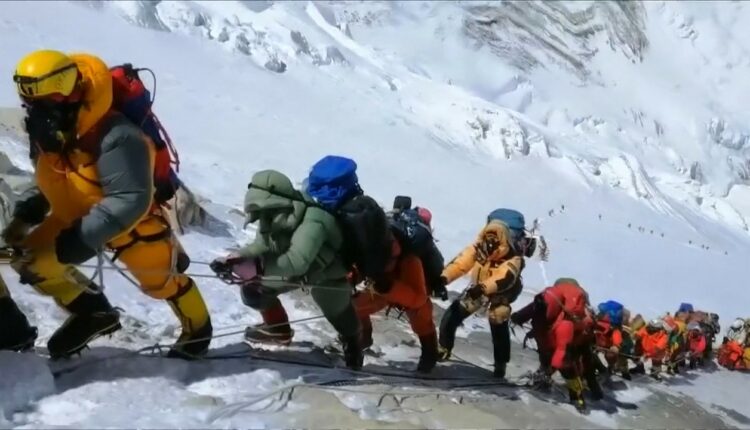
Concerns Emerge as Overtourism Impacts Mount Everest
Authorities in Nepal are alarmed as overtourism and climate change pose significant threats to the safety and integrity of Mount Everest.
While Mount Everest continues to fascinate travellers worldwide, concerns are growing among Nepalese authorities regarding the impact of overtourism and climate change on safety and environment.
Mount Everest’s allure remains strong, drawing adventure seekers willing to tackle the highest peak as a quintessential bucket list challenge. However, the 2023 climbing season witnessed a tragic record of 18 fatalities, attributed to illness, exhaustion, and various accidents. Most casualties were local guides and support staff.
Statistics about Everest
Experts noted that before 2019, Everest saw an average of 800 climbers annually. In the wake of increased travel after the pandemic, climber numbers surged to 1,000 per year, leading to detrimental effects on local ecosystems and economic stability.
Environmentalists raised concerns about the substantial waste left behind by climbers and an increase in overcrowding, resulting in dangerous traffic conditions in critical areas. Furthermore, budget tour operators have compromised safety measures, escalating fatalities each year.
In response, the Nepalese Supreme Court mandated stricter regulations for climbing excursions and waste management on Everest. A recent ruling critiqued the practice of allowing unlimited climbers, emphasizing the need for respect and preservation of the mountain.
Updated rules were enacted in January, effective September 2025, which include:
- One guide for every two climbers is required above 8,000 meters; unguided ascents are banned.
- The cost of climbing permits for foreign climbers has been raised to $15,000, a 36% increase.
- Expedition organisers must provide life insurance for guides.
- Minimum daily wage for high-altitude guides is now set at 1,200 rupees.
- Climbing organisers must submit identification photos of each climber.
- Climbers are required to bring back all their waste to base camp.
